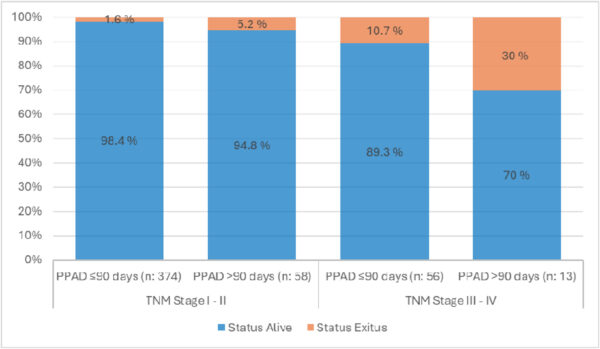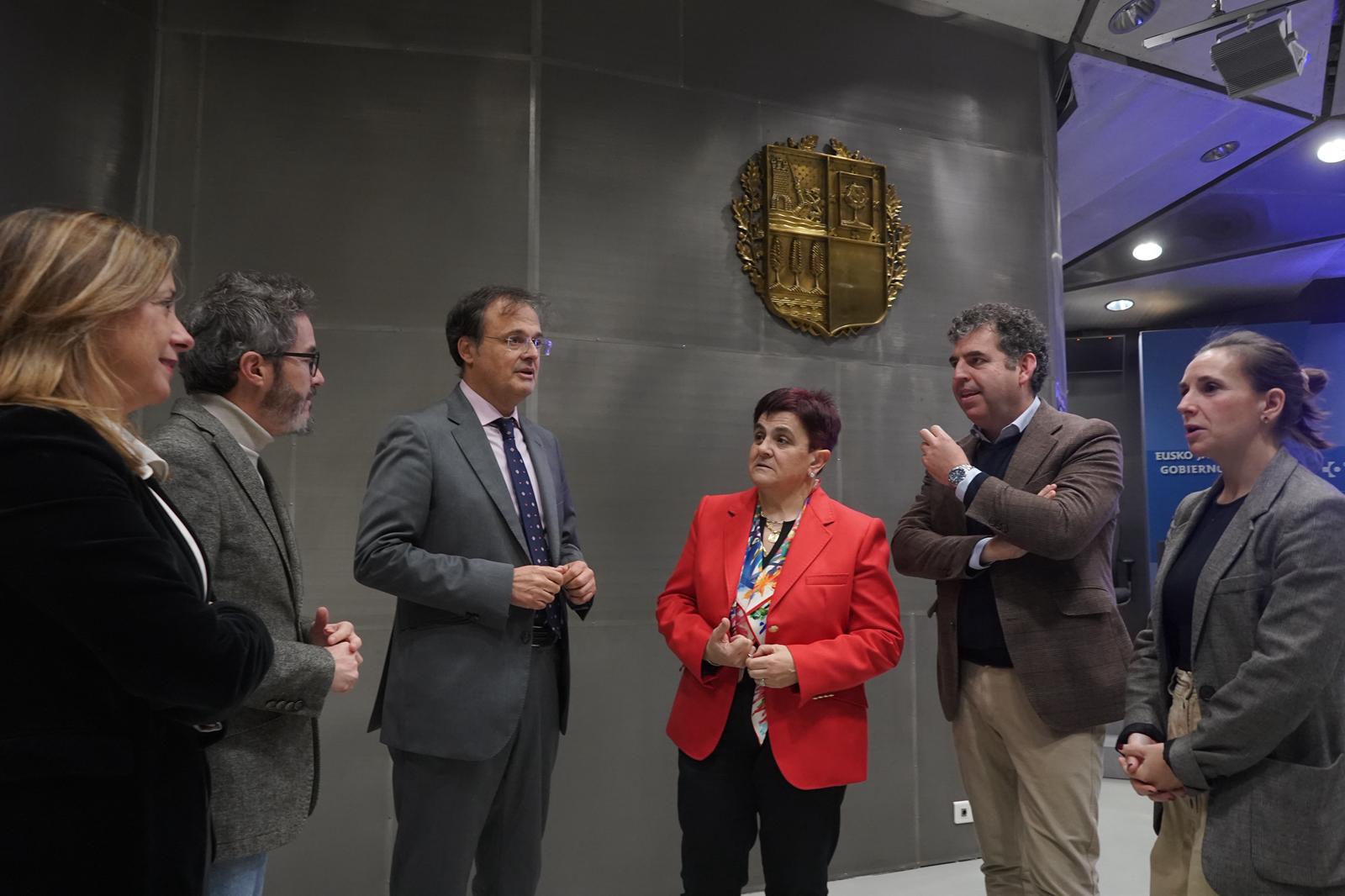Biosistemak participates in a publication on the impact of delays in the care of breast cancer patients
The article, published in the European Journal of Surgical Oncology, was written in collaboration with our researcher Nerea González.
Biosistemak researcher Nerea González co-authored a scientific article recently published in the prestigious European Journal of Surgical Oncology (EJSO), in which a multidisciplinary team of specialists analysed, for the first time in Spain, the effect of patient-attributable delay (PPAD) on the two-year survival rate of women diagnosed with breast cancer.
The study, entitled “Patient-attributable delay and its impact on two-year survival in breast cancer: A multicenter prospective cohort study”, was developed by a research consortium that brings together research and healthcare professionals from several hospitals and research centres in Spain, such as the Malaga Biomedical Research Institute (IBIMA), Donostia University Hospital, Hospital del Mar in Barcelona and the Canary Islands Foundation for Health Research, among others. This study began in the context of the REDISSEC (Network for Research in Health Services for Chronic Diseases) and continues today in the RICAPPS (Network for Research in Chronicity, Primary Care and Health Promotion).
A delay of more than 90 days triples the risk of mortality
The study, which included 543 women with a symptomatic diagnosis of breast cancer between 2013 and 2015, prospectively analyses the time between the onset of the first symptoms perceived by the patient and the decision to seek healthcare. A delay exceeding 90 days was considered “attributable to the patient”.
The results show that 14% of patients experienced a delay of more than three months, which had a clinically relevant impact: these women had a three times higher risk of mortality in the two years following diagnosis compared to those who sought medical attention in less than 90 days.
In addition to delay, the analysis identified other factors associated with a worse prognosis, such as advanced age, living alone, high body mass index, and diagnosis at advanced clinical stages.
Implications for healthcare and public health
As the research team points out, these findings reinforce the importance of working not only to streamline care processes within the healthcare system, but also to raise social awareness and support particularly vulnerable groups.
Interventions aimed at promoting early detection, overcoming fears or cultural barriers, and strengthening social support networks could make a difference in the evolution of many patients, contributing to more equitable and person-centred medicine.
Network collaboration and international outreach
The participation of Biosistemak and the team from the Research Unit at Galdakao-Usansolo Hospital (Osakidetza) consolidates their role within the large cooperative research networks in Spain. This work, jointly coordinated by institutions in Andalusia, Catalonia, the Canary Islands and the Basque Country, is an example of the value of multicentre collaboration in responding to complex health challenges such as breast cancer.
The publication in EJSO, an internationally renowned journal in the field of surgical oncology, recognises the collective effort and reinforces the visibility of Spanish research groups on the global scientific scene.
Article reference:
Martín-García, D. et al. Patient-attributable delay and its impact on two-year survival in breast cancer: A multicentre prospective cohort study. European Journal of Surgical Oncology, 2025. DOI: 10.1016/j.ejso.2025.110280







